Lose Internet When Computer Turned Off Then Back on

Many Windows 10 users have been experiencing issues with Wi-Fi for a variety of reasons. The most common problem seems to be the Wi-Fi frequently disconnecting, causing users to lose access to the internet. This problem could be caused by a variety of reasons, such as:
- The Wi-Fi driver software isn't updated. Ensure that your drivers are always up to date in order to fix any bugs, compatibility issues, and so forth.
- Your driver itself isn't compatible with your current Windows 10 version. If updating the driver doesn't work, try to download the latest version of Windows 10 and update your system as well.
- There's a power management issue.
Although bothersome and frustrating, this problem is easily fixable. In this guide, you will learn the easiest and fastest methods you can try to get your WiFi connection stable again.
What causes the WiFi to keep disconnecting?
Most Windows 10 issues have many possible causes. The WiFi automatically disconnecting from time to time is one of these problems.
By relying on the active and helpful Windows 10 user community, we were able to determine some of the common causes for this error. Keep in mind that your issue could be unique — these are only common themes that come up when users discuss the WiFi disconnecting on its own.
- WiFi Sense . Windows 10 introduces a feature called WiFi Sense. It was designed to make it easier to connect to other WiFi networks, but sometimes it only gets in the way. It allows you to automatically connect to an open wireless hotspot that another Windows 10 user has previously connected to and shared.
This feature can cause a Windows 10 computer to disconnect from the WiFi network to try and connect to another network nearby that has never been successfully connected to before on your computer. - Power Management . As Windows 10 is popular amongst laptop users as well, Microsoft has introduced a number of ways to reduce power usage in an attempt to increase the battery life on devices.
One of these options includes the ability to automatically disable various hardware when power usage hits a specific amount on your computer. It's possible that this feature is turning your WiFi adapter off, causing your computer to frequently disconnect from the network. - Outdated or damaged drivers . Drivers are important components to have as they take care of the functionality of your connected hardware and much more. If your drivers are outdated or damaged, they won't function as intended, causing problems.
- Poorly configured Wireless Adapter . It's possible that settings such as the channel frequency range detection were changed in your Wireless Adapter configuration. Although they may seem like insignificant changes, they can cause your WiFi to keep disconnecting.
- Router damage or placement. If your router itself isn't functioning properly, it can cause you to lose access to your Wi-Fi network. Optimize the placement of your router by bringing it closer to your device. Make sure the router isn't damaged ext
Quick fix for the "Internet randomly disconnects" error
Here is a potential quick fix if the internet randomly disconnects on Windows 10. You should start troubleshooting by completing these methods to potentially restore your internet connection in minutes:
- Restart your router, or reset it to default settings. You can also try restarting your PC.
- Update your Wi-Fi adapter drivers and Wi-Fi firmware drivers. Ensure you only download firmware drivers from the manufacturer's website to avoid malware or outdated products.
- Contact your internet service provider (ISP) to check if there's a connection area within your location.
How to fix the Wi-Fi disconnecting on Windows 10
After we've identified some possible causes, it's time to get to the bottom of the error and start troubleshooting. The methods below focus on fixing your internet frequently and randomly disconnecting on Windows 10. If you're having different network errors, make sure to check our Help Center for a possible solution.
Prerequisites
Before we jump right into fixing your connection, it's important that you take some prerequisites to ensure the repair process goes smoothly.
- Backup your data . (Optional) We highly recommend that you save all your essential data on an external drive before beginning to fix this error. Some methods listed below require you to manipulate account settings, which under specific circumstances can lead to the loss of data.
You can find your user folder in C:\Users , this is the folder we recommend backing up. - Gain access to an administrator account . Administrative permissions are required to perform some of the fixes below. This simply means that you need to use a local account that has the assigned role of an administrator. Need help? Check out our How to make a local user an administrator in Windows 10 guide.
When you're done taking the prerequisites listed above, it's time to start fixing the error.
Method 1: Set your Home Network as Private instead of Public
-
Poor WiFi settings are often the culprit for frequent issues with connection to the internet. Some users report that having your Home Network public may cause issues with the connection. This can be fixed easily by simply setting your WiFi networks to private.
Click on the Network & Internet icon in the system tray. If you don't see this icon in your system tray, try clicking on the arrow pointing upwards to reveal any hidden items.
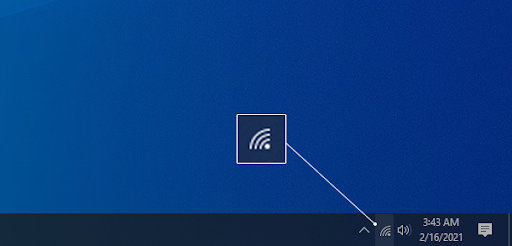
- Click on the network you're connected to, then click on the Properties link.
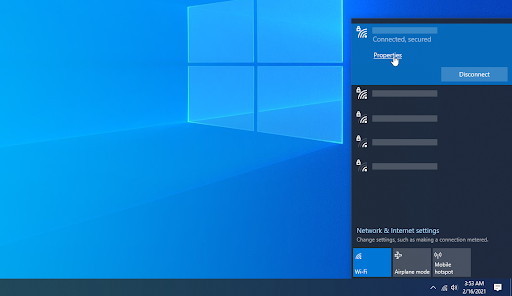
- Look for the Network profile heading. In this section, make sure to change the connection to Private instead of Public. Make sure to only use this if you're connected to WiFi networks you trust.

- Test if your internet still keeps disconnecting after making the change.
Method 2: Disable WiFi Sense
WiFi Sense can be quite a problematic feature despite what it was made for originally. We recommend trying to disable the feature in order to test if it causes any interference with your network.
2021 Update : Wifi Sense no longer exists after Windows 10's version 1803 update. The feature has been quietly removed from all computers due to reasons Microsoft specified in the Announcing Windows 10 Insider Preview Build 14342 blog post.
If you're still using an older version of Windows 10 with WiFi Sense enabled, follow the steps below to turn the feature off and potentially fix your internet connections:
- Click on the Windows icon in your taskbar to bring up the Start menu. Here, click on Settings . (You can also use the Windows + I keyboard shortcut.)
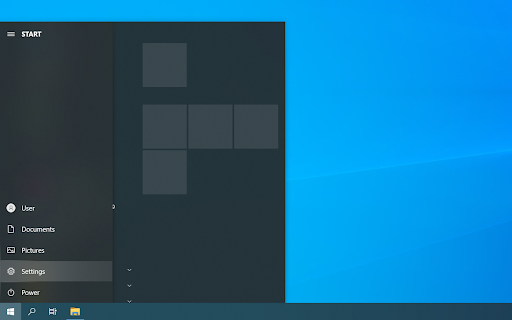
- Click on the Network & Internet tile.

- Use the menu on the left-hand side to switch to the Wi-Fi section. Click on the "Manage Wi-Fi settings" link under the details of your current connection, as shown below.

- Scroll down until you reach the Wi-Fi Sense section. Toggle the switch under Connect to networks shared by my contacts to Off in order to make sure that the feature is properly disabled.

- Test if your internet still has connection issues. You may be required to restart your computer before the changes take place.

- Test if your WiFi still has connection issues.
Method 3: Fix your Power Management settings
It's possible that your Power Management settings disable your wireless adapter from time to time, causing it to temporarily disconnect. You can easily fix this by making one small adjustment.
- Press the Windows + X keys on your keyboard and click on the Device Manager option from the menu.
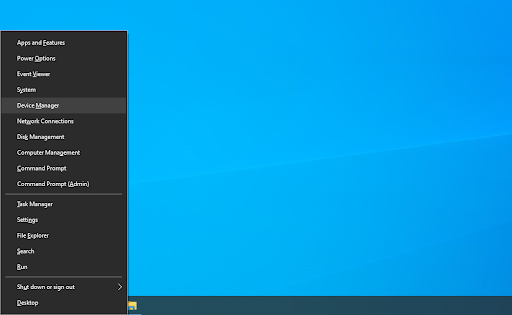
- Expand the Network Adapters menu by clicking on the arrow next to it.
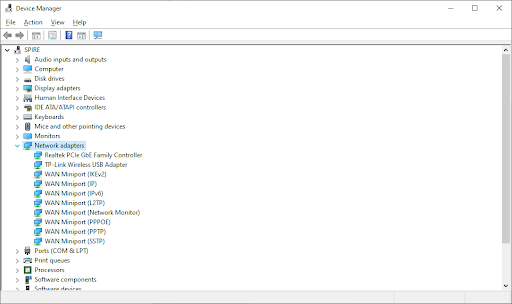
- Double-click on your adapter, then switch over to the Power Management tab in the new window. Uncheck the box next to Allow the computer to turn off this device to save power then click OK.
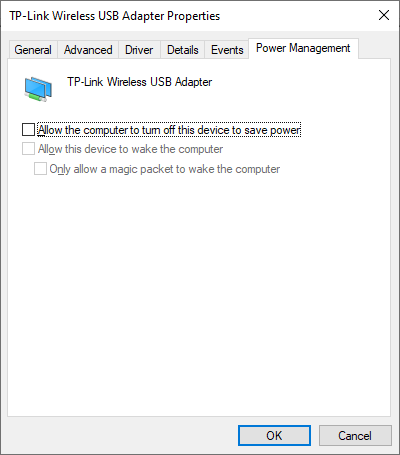
- Uncheck the box next to " Allow the computer to turn off this device to save power " then click OK.
- Restart your device and see if you still experience WiFi issues.
Method 4: Run the Network Troubleshooter
Windows 10 comes with plenty of troubleshooters to get rid of common issues and bugs without having to contact customer support. The Network Troubleshooter may be able to identify and automatically fix issues with your WiFi.
- Search "run" or press the Windows + R keys on your keyboard to bring up the Run utility. Type in "control" and click the OK button. This is going to open the Control Panel.
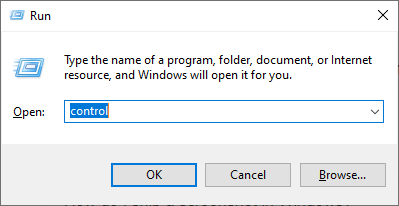
- Once the Control Panel is open, make sure to set your View mode to Large icons . Now, choose the Troubleshooting option.

- Click on Network and Internet .
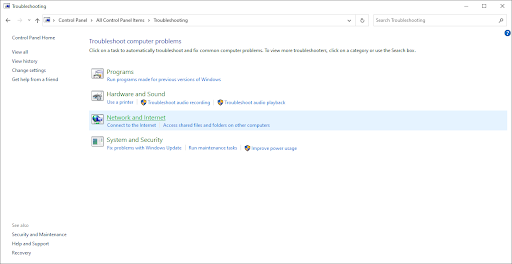
- On the next screen, choose Network Adapter , then follow the on-screen instructions to automatically repair any detected errors.
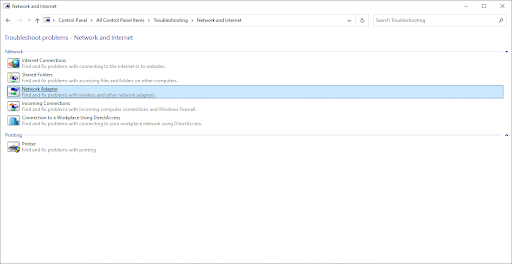
- Restart your device and see if you still experience WiFi issues.
Method 5: Reset the Wi-Fi AutoConfig service
It's possible that a disabled service is making your WiFi behave in an unexpected way. There's a simple fix to this, all you have to do is reset the problematic service.
- Press the Windows + R keys on your keyboard to launch the Run utility. Type in " services.msc " and hit the OK button.

- Locate the WLAN AutoConfig entry in the Services window, then right-click on it and choose Properties .
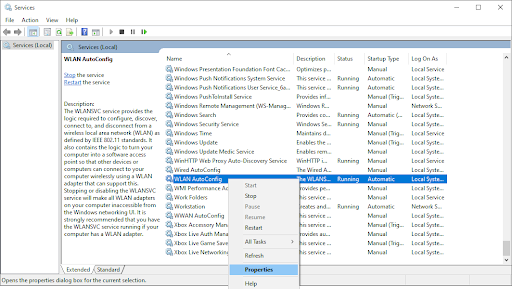
- Change the Startup type to Automatic. When selected, click on the Apply button, then close the window by pressing the OK button.
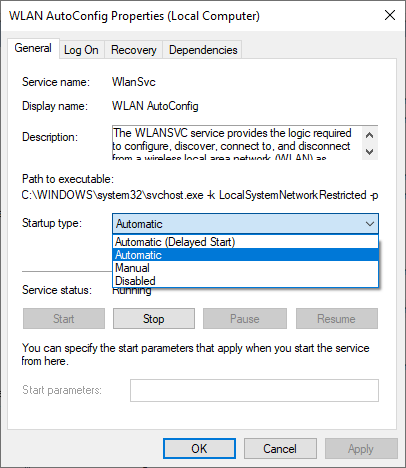
- Click on the Apply button, then close the window by pressing the OK button.
- Test if you still have WiFi connection issues. If yes, restart your computer and try again.
Method 6: Update your wireless drivers
Outdated drivers can cause a whole bunch of issues on your system. Make sure to update them in order to possibly fix any issues with your mouse on Windows 10.
- Press the Windows + X keys on your keyboard and click on the Device Manager option from the menu.
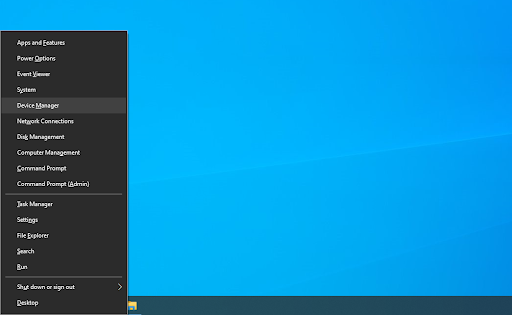
- Expand the Network adapters menu by clicking on the arrow next to it.

- Double click on your adapter. In the new window, switch to the Driver tab, and then click on the Update Driver button.
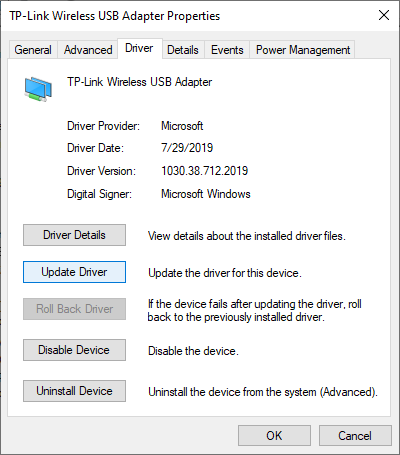
- Allow Windows 10 to look for the newest driver on your local computer or online, then follow any on-screen instructions to install it on your device.
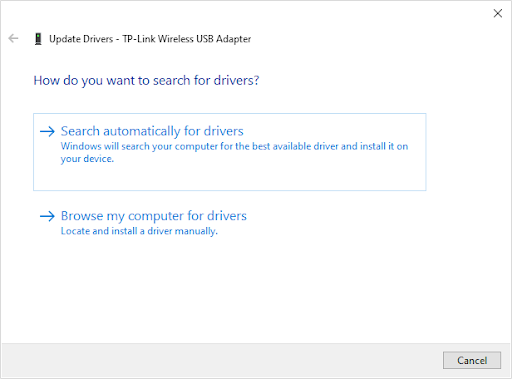
- It's possible that Windows 10 doesn't detect any driver updates. It's good practice to check the manufacturer's website for any possible updates. If you find an updated driver, install it manually on your device.
- Restart your computer and test if the WiFi disconnecting error is still present.
We hope our guide was able to help you resolve the issue of your WiFi frequently disconnecting. Enjoy browsing the internet like it was meant to be!
Final thoughts
If you notice in the future that your system is experiencing similar issues, feel free to return to our article and apply some other fixes. If nothing works, we recommend turning to either Microsoft's customer support team or looking for an IT specialist in regards to your PC's health.
Are you interested in learning more about Windows 10? You can browse our dedicated Help Center section and find articles about everything related to Microsoft's groundbreaking operating system.
If you're looking for a software company you can trust for its integrity and honest business practices, look no further than SoftwareKeep. We are a Microsoft Certified Partner and a BBB Accredited Business that cares about bringing our customers a reliable, satisfying experience on the software products they need. We will be with you before, during, and after all the sales.
You may also like
» How to Personalize Windows 10
» How to Use Multiple Desktops in Windows 10
» How to fix Brightness Control not working on Windows 10
Lose Internet When Computer Turned Off Then Back on
Source: https://softwarekeep.com/help-center/wifi-keeps-disconnecting-on-windows
0 Response to "Lose Internet When Computer Turned Off Then Back on"
Post a Comment